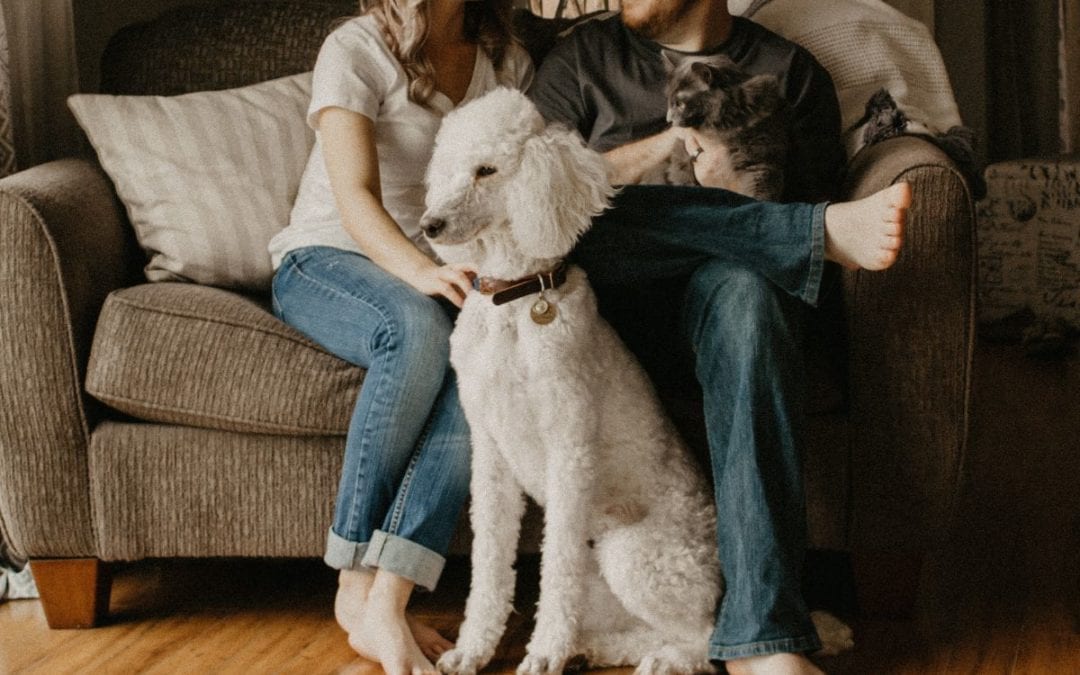Whole Family Wellness
Research has shown that having pets can increase fitness, lower stress, and bring joy to their owners. Follow the tips below to ensure that your family and pets remain happy and healthy.
Maintain a safe environment
Pets are a part of the family and while it is great to have them with us in our living spaces it is also important to make sure we are keeping them safe when we are unable to monitor them closely. Baby proofing your home is just as necessary with pets as it is for children. Keep chocolate and other dangerous food items out of the reach of pets. Make sure that any household plants are safe to be around your pets before bringing them into the home. Ensure that garbage cans have lids and are sturdy and unable to knock over by your pets. Make sure that antifreeze and other rodenticides are stored in cabinets your pets can not access. If your pets are mischievous then it is typically safer to crate them or leave them in a puppy/pet proof room while you are away. It is always safest to keep cats indoors.
Preventative
Animals can carry diseases like influenza, cryptosporidium and salmonella that can be transmitted to humans, but can also be easily prevented with proper hygiene such as hand washing. Roundworms for example are a preventable cause of childhood blindness. Children, elderly, and immune compromised individuals are at higher risk of contracting parasites. Checking your pet’s stool samples routinely is a great way to help protect your family from parasites that your pet could be harboring. Administering a monthly comprehensive parasite preventative to your pets is a good way to prevent accidental parasite exposures for the whole family. Prevention is available for dogs and cats. Cleaning litter boxes once to twice daily can also greatly reduce the likelihood of toxoplasmosis infections. Practicing good hygiene after handling reptiles, chickens and other animals can also reduce your risk of contracting zoonotic diseases.
Vaccinations
Vaccinating pets is also a crucial way to keep family members safe. Some diseases that we vaccinate your pet for include diseases contagious to humans such as Leptospirosis and Rabies. Leave wildlife alone and do not let your animals approach a wild animal. If you find sick or injured wild animal, contact a wildlife rehabilitator for help.
Exercise/healthy weight
Ensuring that everyone in your home is getting enough exercise is important in keeping you all healthy and happy. Pets who maintain a healthy weight are less likely to develop other disorders as they age. It also keeps energetic pets out of trouble. Providing enrichment is very important to the health and wellbeing of your pet. These activities are great for both of you so get out and get moving! Feel free to share healthy snacks with your pets. Things like carrots and green beans are a great treat for both of you. Avoid grapes, raisins, garlic, onion and avocado as they can be toxic to pets.
Respect for pets personal space
Teach all the members of the household how to read your pet’s body language and show respect for their furry companions. Teaching children how to approach animals, greet them and how to tell when they are unhappy is a very important way to avoid bites and scratches.
For more information visit Centers for Disease Control and Prevention
https://www.cdc.gov/healthypets/health-benefits/
Amanda Siciliano
Stow Kent Animal Hospital


